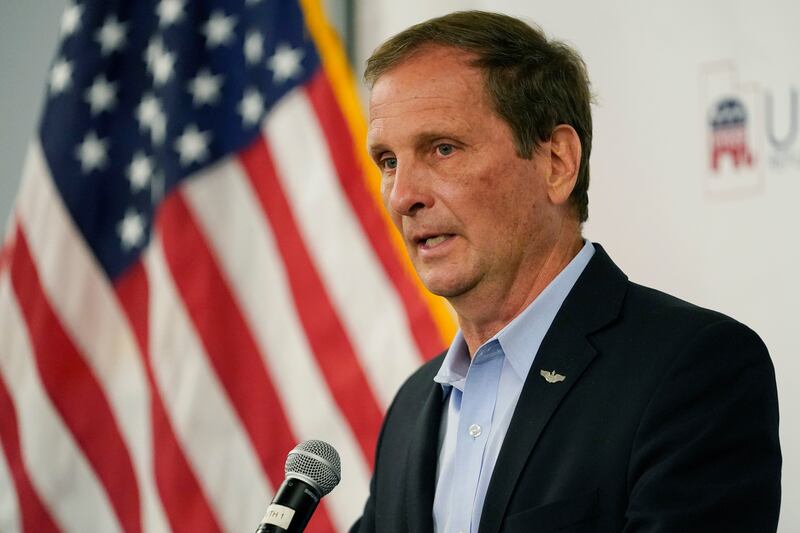Utah Rep. Chris Stewart spelled out Monday that he wants to see a total boycott of the 2022 Winter Games in Beijing by the United States, including keeping American athletes from competing.
The GOP congressman’s call comes after President Joe Biden announced last week U.S. government representatives would not attend the Olympics set to start in February to protest China’s record on human rights.
Other nations, including the United Kingdom and Australia, have joined the diplomatic boycott sought by Utah Sen. Mitt Romney, the former leader of the 2002 Winter Games in Salt Lake City, along with both Republicans and Democrats in Congress.
But Stewart said on KSL Newsradio’s “Dave and Dujanovic” program any participation in the Olympics is essentially support for China’s actions against religious and ethnic minorities as well as Taiwan and Hong Kong, and the “malicious way they responded to COVID-19.”
He acknowledged the impact of a total boycott on Team USA. Some 250 Olympic and Paralympic athletes are expected to represent the United States in Beijing, according to the U.S. Olympic and Paralympic Committee.
“I really, really hate to say this and I know people answer back and they say, ‘But what about the athletes? It’s so unfair to them.’ And I completely agree with that. It is unfair to them,” Stewart said.
Yet, he said, there are millions of “Muslim Uyghurs, essentially put in concentration camps, forced labor camps,” along with “unavoidable” deaths from the novel coronavirus believed to have originated in China, provocations of Taiwan and crackdowns in Hong Kong.
“At some point, we just have to say, ‘Look, this is not OK,’” Stewart said.
“I think if we participate in the Olympics, we’re essentially saying that, ‘Yeah, we’re concerned about those things but it’s not that big a deal. Participating in the Olympics is more important to us.’ I just don’t think it is anymore,” he said.
For the Chinese government, hosting the world’s athletes is “so important to their international standing,” Stewart said, so what he said would be a “full” boycott is “a real lever we have over them if we take this stand.”
The last time the United States did not send a team to an Olympics was in 1980, when many Western nations stayed away from the Summer Games in Moscow to protest the then-Soviet Union’s invasion of Afghanistan that ended up lasting a decade.
Stewart said a statement was made then and should be again now.
Olympic athletes have not forgotten missing out on the opportunity to compete in 1980, including International Olympic Committee President Thomas Bach, who was unable then to defend his gold medal in team fencing won four years earlier.
Bach has said “a sporting boycott only punishes the athletes of the boycotting country and deprives their people of sharing in the success, pride and joy of their Olympic team.” He noted the diplomatic boycott makes it clear athletes “are beyond politics.”
Utah is bidding to bring the Olympics back to the state, in 2030 or 2034. The Salt Lake City-Utah Committee for the Games is sending a three-member delegation to observe the Olympics in Beijing, and has had little to say about the boycott.
Stewart said he supports Utah’s bid for another Winter Games and that it “shouldn’t be tied together” with a boycott. The state is home to many athletes vying for a spot on Team USA, here to train at venues built for the 2002 Winter Games.
Four-time Olympic speedskater Catherine Raney Norman, the chairwoman of the bid committee, said she is “very thankful” that athletes can continue to compete in Beijing under the diplomatic boycott.
“The athletes have trained their entire lives for something like this,” she said. “We had a boycott in 1980 and I can tell you, that is still felt throughout the movement, as raw as it was in 1980. So ensuring the athletes can compete is absolutely a priority.”


